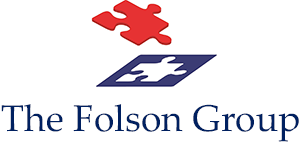Correcting what many consider an egregious mistake, congress changed course and made cooperative apartment buildings eligible for Paycheck Protection Program (PPP) Loans in the recently approved second go-round called the Economic Aid Act of 2020. Unfortunately, condominiums and HOAs are still not covered, but including co-ops is at least a small step in the right direction.
Read MoreNew York City Co-op and Condo management is as efficient as its team members. With the many layers of management, it is easy to see that inefficiencies can develop. Being aware of why Co-ops and Condos are inefficient is fundamental to correcting the problem.
Do you remember as a kid playing the game of “Telephone?”
Read MoreNew York City's building codes and laws date back to 1647 and regulate every aspect of your building’s construction and maintenance. New laws are often passed after major disasters, public outcry, or technological advancements, making for frequently changed and updated code requirements. With NYC building codes ever-changing, it can be difficult for boards to stay up to date. Here are the top five building codes that have the most impact on NYC co-ops and condos:
Read MoreWe often find that co-op, condo and homeowners associations are paying for services that they are not using.
How do we know that? Because we have reviewed financial statements for thousands of buildings. So, when we see an outlier, such as an expense that we normally do not see, we ask what it is for.
I bet that you can relate to this. If you are anything like me, there has probably been a time when you decided to cancel a service, but then either forgot or got too busy to follow through. And, in many cases, you are one person making the decision and taking the action. Every now and again, I hear that businesses have the same problem. This is understandable because businesses have even more moving parts.
Read MoreSetting realistic budget goals for your co-op or condo will keep the business of your building running smoothly and help you increase the value of your property. If you are involved in preparing or approving an NYC co-op and condo budget, you and your team should be asking yourself these basic questions.
Read MoreNew York City building energy efficiency scores are now live! Effective October 31, 2020, all buildings greater than 25,000 square feet must post their energy efficiency grade, visible to all by every and all entrances. Those that do not, risk getting fined.
Read MoreHeading into the seventh month of social distancing, many coop and condo boards are starting to decide on whether to have or not to have their annual meetings. Although boards could likely postpone the annual meeting for now, some boards would like to schedule and hold their annual meetings. Here are some options and benefits to scheduling a virtual annual meeting.
Read MoreAt 7 pm every night, New Yorkers are literally hanging out of their windows and clapping and banging pots and pans to cheer on and thank our essential workers. Since the onset of the Covid-19 ‘shelter in place’ order, #ClapBecauseWeCare has become a highlight for many of us in New York City. Which brings us to the question, what residential building workers are considered essential?
Photocredit: Deutsch Photography
Read MoreWith the COVID-19 measures taken, multifamily buildings, including coops and condos, may not be able to collect rents, maintenance, and common charges from those affected. Yet, property owners need to continue paying their bills. Will this jeopardize their ability to function?
Read MoreIt’s time for sidewalk sheds and scaffolding, again. February 21, 2020 marks the beginning of the 9th cycle of façade inspections for all NYC buildings. The Façade Inspection Safety Program (FISP) was formerly known and still often referred to as Local Law 11. Building owners and managers have four years to complete the inspection and make the necessary repairs.
Read More










